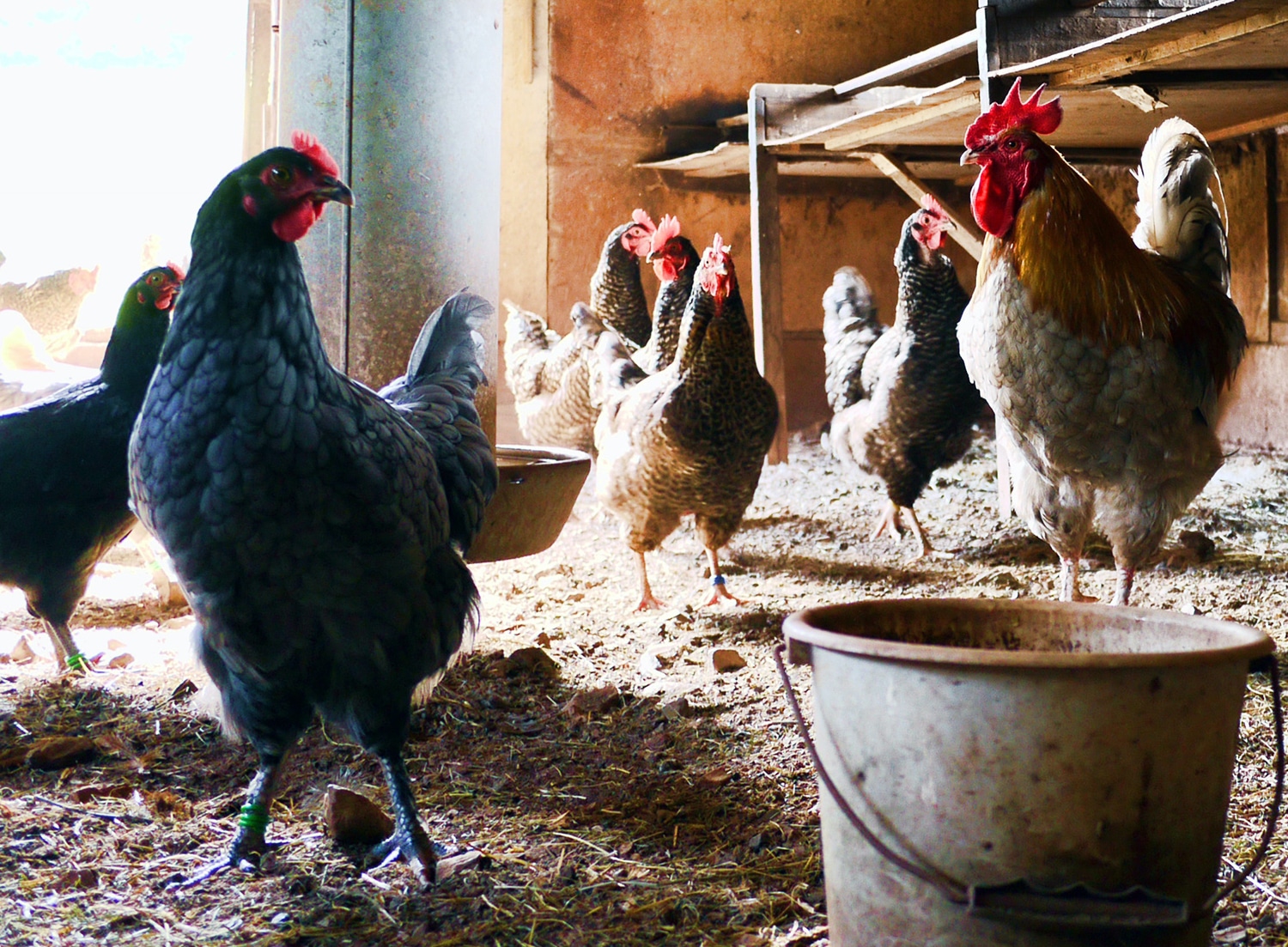Dogs love chicken. It’s everywhere: in dog food, treats, supplements – even some toys come chicken-flavored. While it can be a good source of protein for your pet, we’ll go over reasons to utilize caution when feeding your dog chicken.
Dogs and Chicken Allergies
We recommend feeding your dog a variety of high protein pet food instead of the same food product solely. Exclusively feeding chicken products can trigger allergic reactions and sensitivities in your dog. Dogs with itchy, red paw pads and yeasty ears can have these symptoms intensified by continuing to feed them chicken.
When consuming large amounts of chicken or chicken products, your dog’s body begins building an intolerance to the protein. This intolerance is what triggers your dog’s sensitivities and allergies. This can be exhibited in hot spots, yeasty ears, obsessive licking of the paws, vomiting or diarrhea.

Dog Sensitivities Can Develop Suddenly
Just like humans, your dog’s body changes as he or she gets older which can result in sensitivities developing to things that never bothered them before. Monitoring your dog’s reaction to what they are eating and encountering every day will help you notice any differences in their habits. This makes it easier to report any significant changes to your dog’s veterinarian.
Dog Food Comprised of Malnourished Chickens
Let’s face it: most chickens raised for dog food aren’t free range or eating healthy diets. Many are malnourished and not humanely or ethically sourced. After they are processed for pet food, there aren’t many nutrients remaining for your pets to consume, causing food companies to add synthetic vitamins and minerals back in.
Without the proper nutrients, your pet can have vitamin deficiencies, and you’ll then have to supplement in other ways.
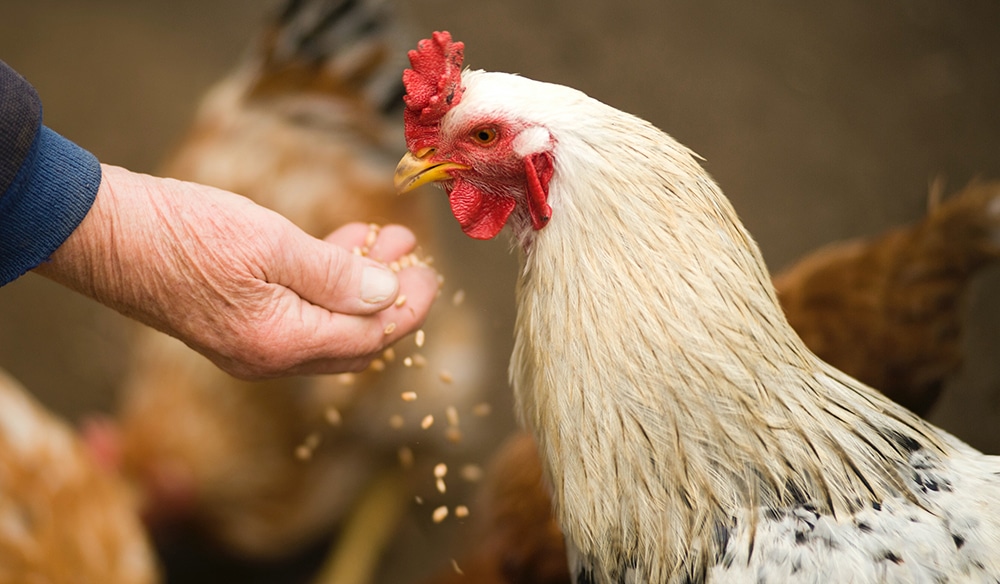
Read the Ingredient Label on Dog Food
Be thorough when reading the ingredient panels on treats, foods, supplements, chews and even flavored toys. Bags of commercial chicken feed are full of grains, meals and other fillers with little-to-no nutritional value, making it a diet of miscellaneous ingredients with very little meat.
Be mindful of ingredients labeled as “poultry,” since it does not specify which type of poultry is being used. Many consumers often mistake poultry as a synonym for chicken, though it is a blanket term to mean animals in the bird family. Poultry meals may consist of chickens, doves, ducks, geese, grouse, guinea fowl, partridges, pea fowl, pheasants, pigeons, quail, swans and turkeys.
Chicken-Related Foods to Avoid
If your dog suffers from chicken allergies, they’ll need a nutritious, balanced dog food that does not include chicken meat, chicken meal, chicken fat, chicken broth, chicken eggs or chicken by-products. You may search for an over-the-counter diet or seek the advice of a veterinarian for a prescription diet.

Chicken-Free Dog Food Options
Several brands of dog food are starting to manufacture chicken-free diets. Zignature is an excellent option for dogs with allergies and sensitivities as they are essentially a bland diet.
Acana’s Singles line, which focuses on a single protein, eliminates chicken in all formats. Several fresh and raw diets have chicken-free options and will use duck eggs instead of chicken eggs for added protein and balance.
Treats
Single-ingredient treats are the easiest way to eliminate poultry. Northwest Naturals Rewards create single-ingredient, freeze dried treats your pet will devour! Zignature Ziggy Bars are also excellent for dogs who love a crunchy, tasty treat.
You may even have treat options at home your pup will devour such as apples, bananas, baby carrots and green beans.
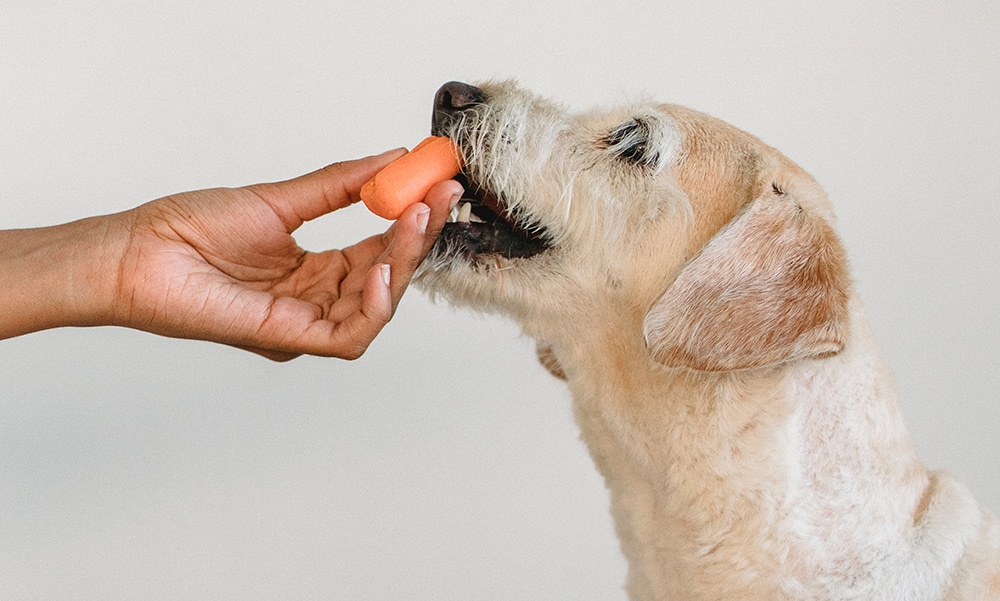
Chicken-Free Diets for Dogs with Sensitive Stomachs
Oftentimes, a bland diet of chicken and rice is recommended when experiencing digestion issues. A great substitute for this is canned pumpkin or mashed sweet potatoes, boiled ground turkey or beef, and rice. These ingredients are easy on dogs with upset stomachs.

Pumpkin
Canned pumpkin is a great addition to any diet for added fiber and the occasional upset stomach. There are several ways to feed pumpkin to benefit your pup’s gut.
Grandma Lucy’s Digestion Pumpkin Pouch is designed to support your dog’s gut in a natural way. Weruva Pumpkin comes in a single use pouch to easily squeeze onto food or a lick mat (which is an awesome tool for anxious pups!).
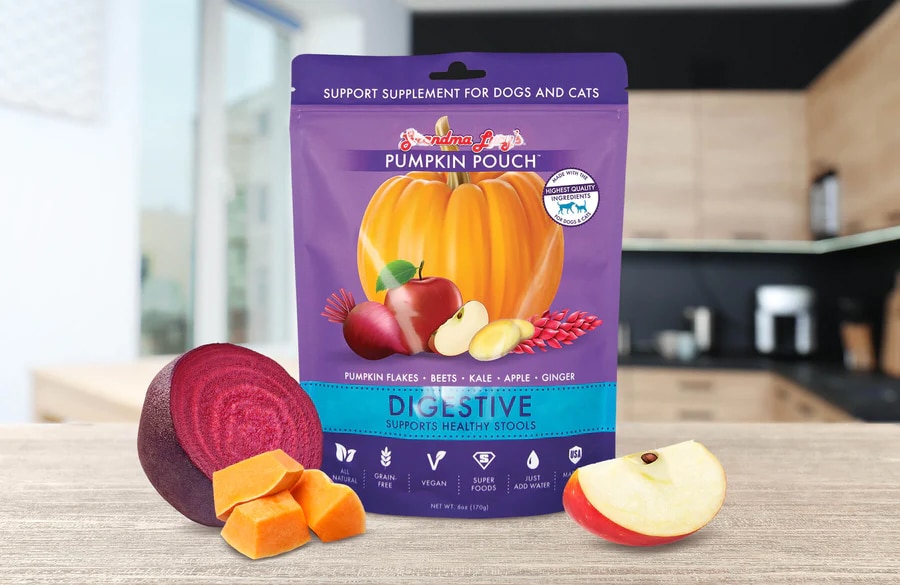
Goat milk or kefir
Another option would be to serve goat milk or kefir to help aid in digestion and any inflammation, including allergy flares. Since some milks are fermented, the benefits to your dog’s overall health are amazing! You can find fresh, unpasteurized milks from a local farmer, or in the refrigerated section at your local pet store.
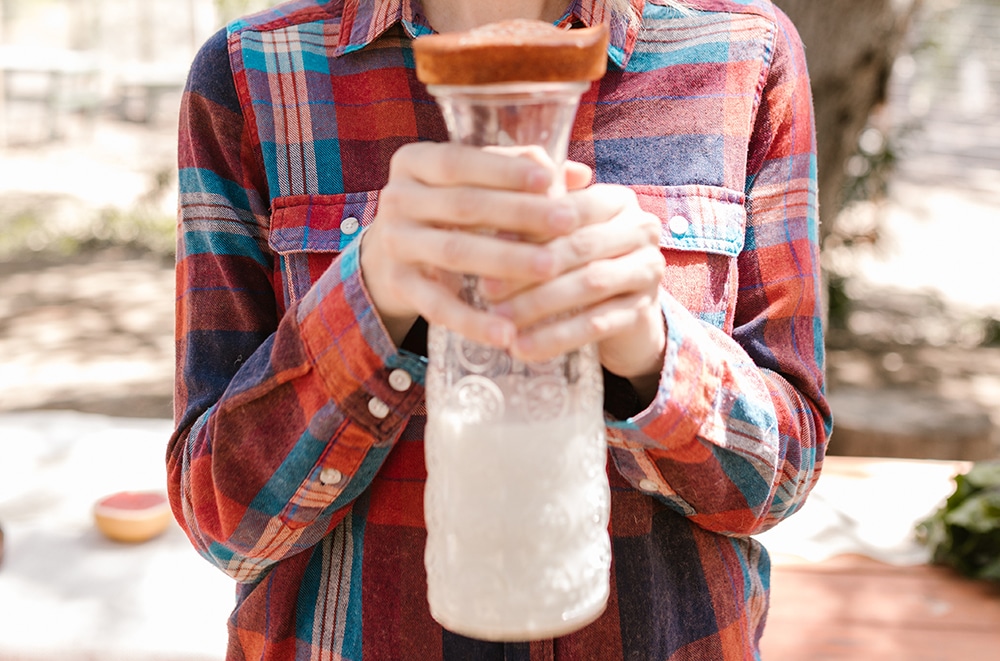
Other Chicken Dog Food Considerations
Raw Chicken
Some pet owners feed their dogs a raw food diet. Dogs are descended from wolves and a raw diet is seen as a more natural approach to their food. This pure protein doesn’t have any added carbohydrates or sugars. It is high in calcium, vitamin B6 and selenium. However, raw chicken is not as nutrient dense as other raw proteins. It would need to be in a rotation with other meats.
Though raw chicken is a natural protein, there are some things to remember before serving it to your pet. First, make sure your dog is heathy. Some existing health issues are not compatible with a raw diet. Second, always use safety when handling raw chicken as humans are at risk for different bacterial diseases. Third, start off slow with your pet to not suddenly overwhelm their digestive tract, especially if they have never consumed raw meat before.
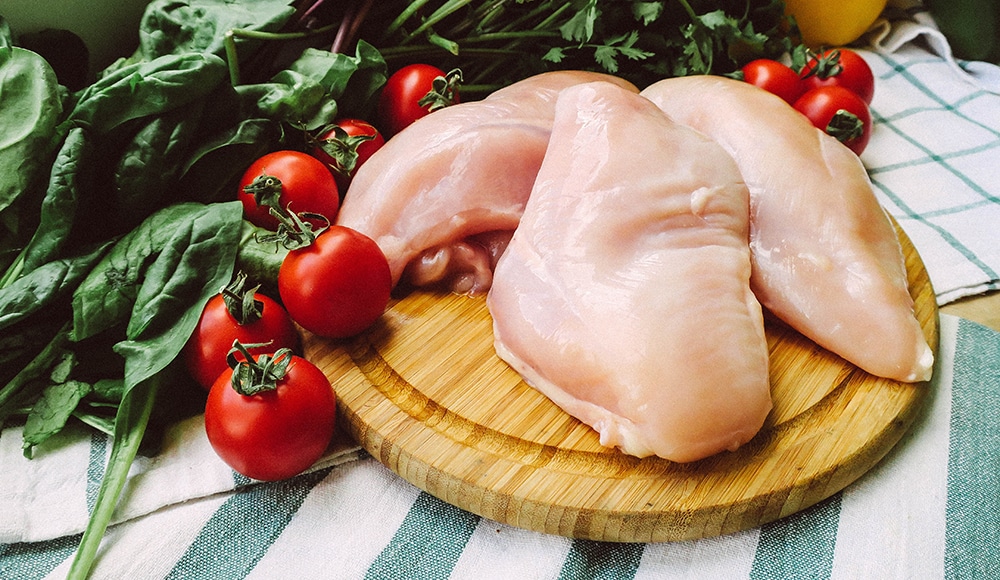
Don’t Give Your Dog Chicken Bones
Dogs love bones. Bones given to dogs should come from a pet store and not your kitchen, however. Chicken bones are a choking hazard and can potentially damage a dog’s intestines. Because chicken bones break and splinter easily, they can lead to severe health conditions or even death.
If you give chicken to your dog, make sure to take it off the bone first. It’s important to always dispose of chicken bones in the garbage and keep it in a place your dog cannot access.
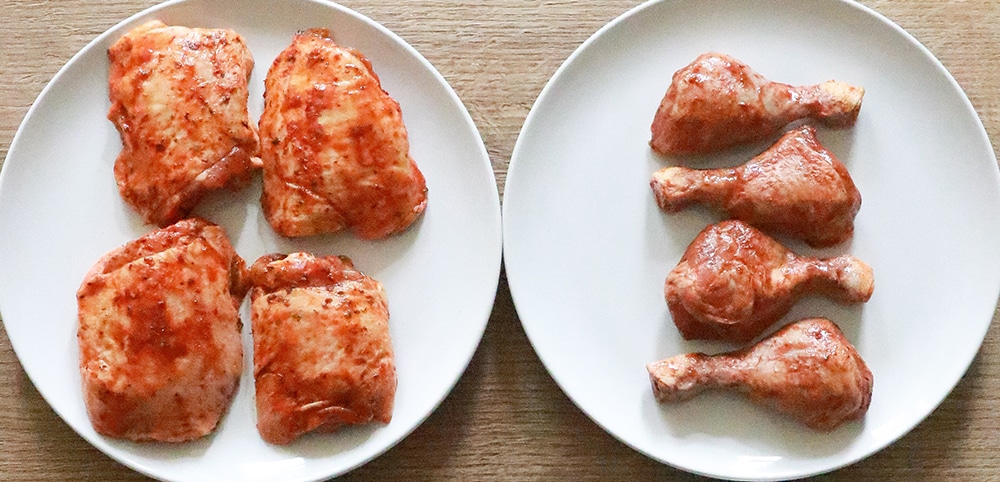
Giving Fried or Breaded Chicken to Dogs
Pet owners are advised against feeding fried chicken to their pets, as they contain excess oil and fat which are bad for your dog and can contribute to obesity.
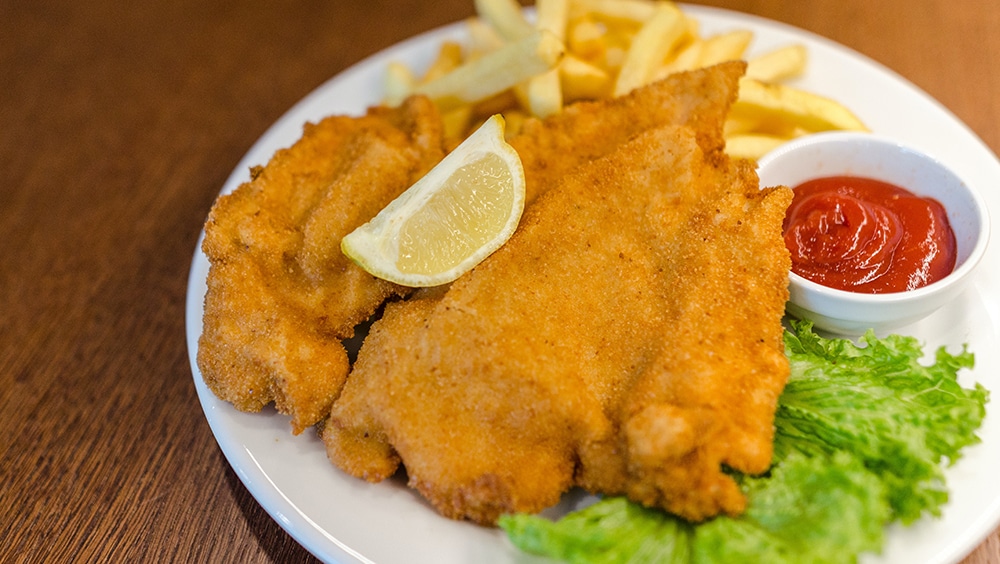
Be Wary of Spices
Take caution when feeding seasoned chicken to dogs. Onions and onion powder are incredibly toxic to dogs. Nutmeg, cocoa powder, garlic and black pepper are also among spices you should avoid.
Spicy foods can cause stomach problems, diarrhea, gas and pain for your dog. They can also cause your dog to vomit and be excessively thirsty.
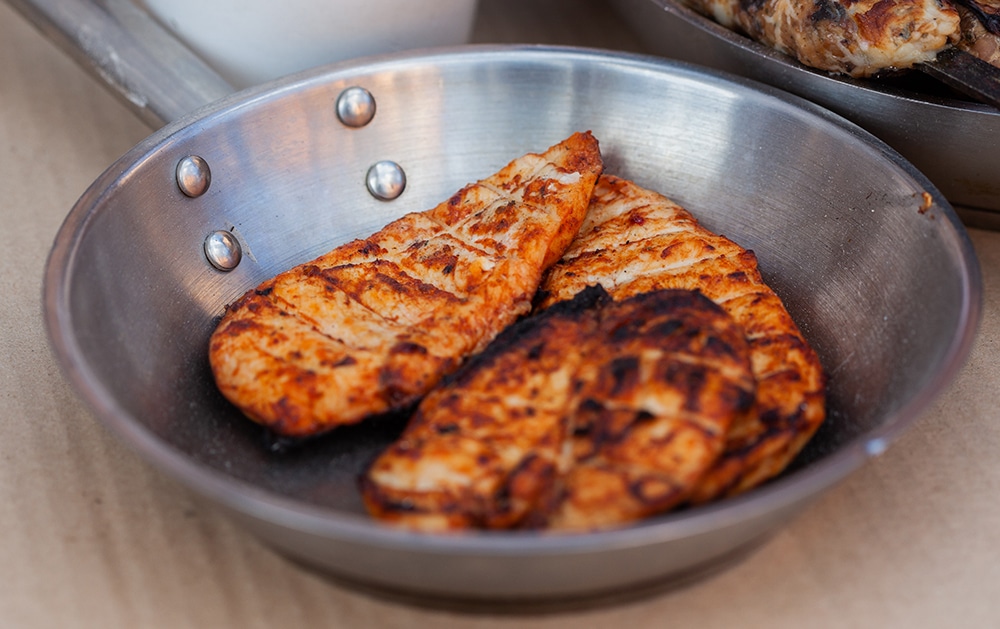
Summary
Cutting out chicken is not the cure for your dog’s health issues, but it can substantially help when it is eliminated in all formats. Your dog’s body will start to heal itself from the inside out, making your pup healthier and happier! Noticing irritated paw pads, yeasty ears and hot spots are usually an exhibited sign that something is going on internally and needs to be addressed.
Keep tabs on what your pet is ingesting and report any significant changes to your vet at your dog’s next appointment. Small changes can easily trigger a larger reaction if not addressed in a timely manner. It is important to consult your veterinarian before any major changes to your pet’s diet, especially if they are on a vet-prescribed diet for other ailments.
We recommend switching up your dog’s protein, even if your pet seems fine after eating chicken. Giving a variety helps prevent your dog from producing an intolerance to the protein.
If you’re the type to give your dog human food on occasion, be careful not to give your dog raw, seasoned or fried chicken. And keep chicken bones away from your pet.
If you have questions about your pet’s diet, ask one of us at Smoochie Pooch for guidance or seek out the advice of your veterinarian.


